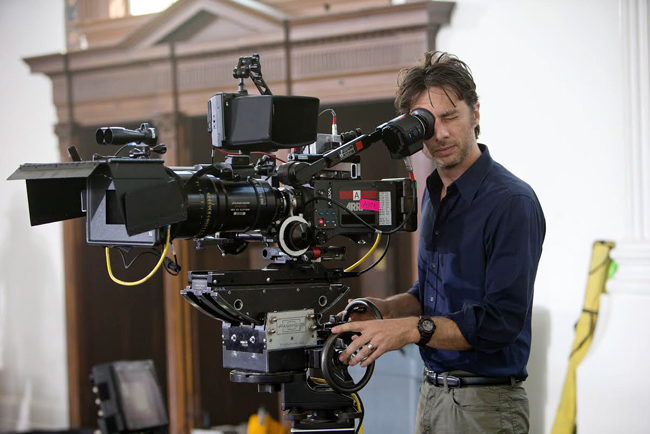With his 2004 feature debut, “Garden State,” Zach Braff established himself as an intriguing voice in indie cinema — sensitive, quirky and with a great ear for music. Ten years later, he returns with “Wish I Was Here,” a spiritual sequel to “Garden State” that Braff crowdfunded via an obviously wild and successful Kickstarter campaign.
Before the film’s theatrical release, Braff embarked on a nationwide tour of Kickstarter screenings. One of his first stops was Austin, where he sat down with The Daily Texan to discuss his new film.
DT: Why wait 10 years to direct another film?
ZB: It wasn’t by choice. It was really hard to make another movie while doing “Scrubs,” and then I thought I’d try to make one with the studio system, and that really wasn’t my cup of tea. I had a couple of big studio movies fall apart just because of the machine of it all, and I had an indie fall apart … They’re so hard to get made! It’s so darn hard to have everything ever line up, and it finally did this time, thanks to my fans getting behind this project.
DT: So what inspired you to make this film?
ZB: I wanted to make another film that was personal, that I could relate to. “Garden State” worked so well because I had really written about what I was thinking about in that time in my life, and what my friends and I were listening to and what we were obsessing about and what we were laughing about — it was sort of a collage of all those things. So I tried to do that same thing now, to take the temperature, if you will, of where I was now.
DT: There are recurring themes in your work — the struggling actor, tumultuous father-son relationships, a dying parent. What intrigues you about those themes?
ZB: I think you gotta write what you know. I write about a struggling actor, that people will see that it’s metaphoric for going after whatever their dream is. A struggling actor sitting in Hollywood in an empty waiting room is just A. what I know [and] B., the most beautiful metaphor, I think, for trying to go after the impossible dream. Sometimes you’re just so lost, and you’re chasing something, and you couldn’t be on a more wrong path, and life is so finite and quick, and how long are we allowed to go after those dreams? Those are themes I’m interested in.
And the father-son thing, I’m just a sucker for that. I have a great relationship with my dad, but man, he can drive me crazy sometimes. And I couldn’t care less about sports, but when I see “Field of Dreams,” I just start crying my eyes out when that dad comes out of the cornfield. I think the smartest thing, and I tell this to writers all the time, is: You’ve heard write what you know, that’s the most hackneyed expression. But even more detailed, write what pains your heart. Write what makes you laugh, write what makes your eyes well, write what makes you want to punch a hole in the wall. To me, that’s what the best stuff comes out of.
DT: What were some of the pros and cons for Kickstarting your movie, as you did?
ZB: It was almost all pros. I’m here in Austin doing backer screenings, which is so cool. I get to meet my fans, I get to do Q&As with them, I get to get out there. It’s great press for the movie, these screenings, it’s all good for the movie. The negative was the beginning, there was so much information about it on the web and so much onus fell on me that I didn’t expect to correct a lot of the misinformation that took me back.
DT: UT is full of aspiring writers, actors, directors. What advice do you have for them?
ZB: Just to keep … To make short films. You have such access now to Canons, 5D’s which are so easily gettable. You don’t have to pay for film and film development. You just have to get out there and make really quality short films. Don’t just throw ‘em in and shoot anything — really plan them out, make them short, ten minutes or less, and just keep doing it. I went to a fancy film school and sat in lots of classrooms, but what I learned most from was doing — going out there and working on films, making short films every weekend. That’s how I got good.















